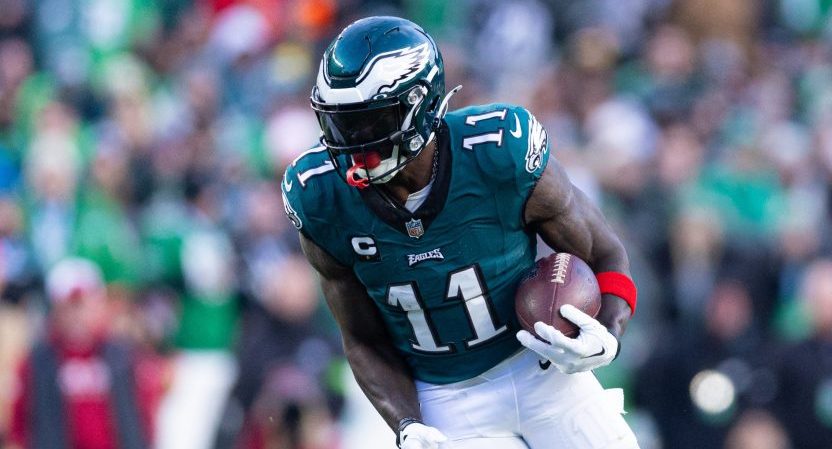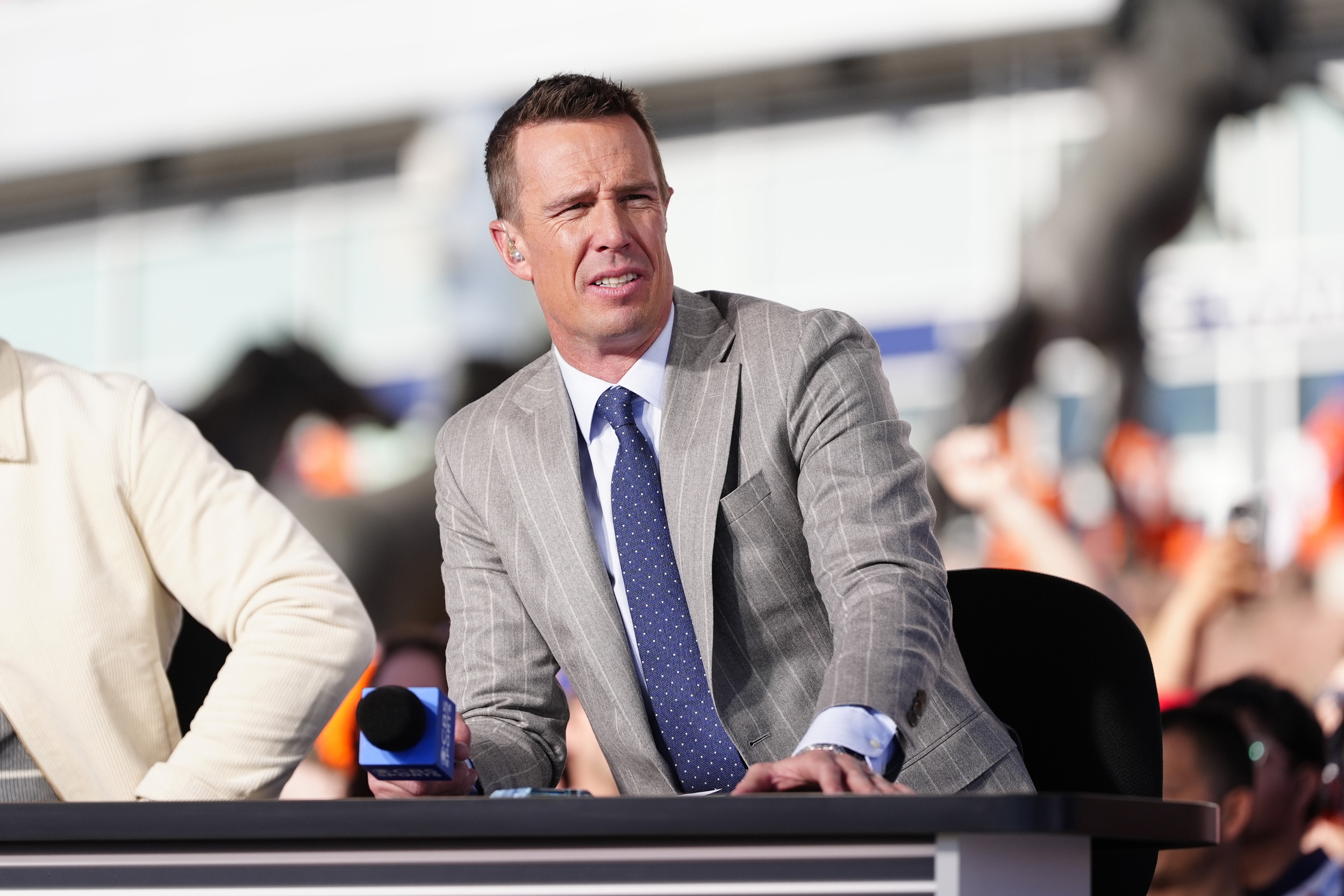 With each passing generation the dogma of the professional athlete as role model has become more and more blurred. Once unwavering symbols of perseverance and fortitude, the brand of ‘pro athlete’ has been tarnished by countless sexual assaults, armed robberies, drug possession, and murder. Today, these few gifted individuals are increasingly less known as athletes, rather as entertainers and performers, unbound by the duties of their professional predecessors. There is, however, one among them that has evolved into lightning rod for progress and a champion of humanity.
With each passing generation the dogma of the professional athlete as role model has become more and more blurred. Once unwavering symbols of perseverance and fortitude, the brand of ‘pro athlete’ has been tarnished by countless sexual assaults, armed robberies, drug possession, and murder. Today, these few gifted individuals are increasingly less known as athletes, rather as entertainers and performers, unbound by the duties of their professional predecessors. There is, however, one among them that has evolved into lightning rod for progress and a champion of humanity.
His name is Chris Kluwe, punter for the Oakland Raiders.
I recently had the privilege of taking Chris to lunch to thank him for his help with completing my graduate degree.

Informal is the New Normal
I arrived at the Napa Valley Marriott, home of the Raiders training camp, ten minutes past our designated lobby meeting time.
The route from Sonoma to Napa is a twelve-mile, one lane road. Though rife with natural splendor and vineyards canvassing the countryside, the occurrence of excruciatingly slowly driving elderly is commonplace. My worry of being viewed as a tardy goof by one of my idols was swiftly put to rest by the beaming and congenial person that stood before me, hand extended, happy to make my acquaintance.
Dressed in basketball shorts, tee-shirt, backwards Raiders cap, and flip flops, Chris counters the image that many of us have of professional athletes. No entourage, no flashy threads, no larger than life demeanor. If I didn’t already know him as an athlete, I would think he’s a regular guy going about his life.
That’s just the thing, though, Chris Kluwe is a regular guy. One who happens to play professional football.
He is a person that doesn’t let the stigma of the job dictate societal expectations of his life. On the field, he’s 100% business; off the field, he’s Chris Kluwe, gamer, nerd, author, and defender of human rights. Before I tell you the story of the journey that led to our lunch, I have to tell you a little bit about how Chris Kluwe became Chris Kluwe.
The Christening of Kluwe
As an athlete, his accomplishments certainly merit praise, but it is his accomplishments as a person off the field that have made him revered by so many, both within and outside of the sporting community.
Athlete, movie star, musician, doctor, barista, plumber. All should be treated with empathy and respect in Chris’s eyes, a quality many have observed through his candid and informal demeanor with anyone that wishes to speak with him. A quality that was evident when I solicited his help several months ago. That is, unless, you’re deserving of a tongue-lashing.
Chris has never been afraid to stand up for not only his own personal beliefs, but that of morality and general common decency, regularly speaking his mind in public forums and challenging the shortsighted, bigoted, and prejudicial opinions held by any, including politicians and fellow athletes.
He first came to prominence in the sporting community through a charmingly scathing public letter to former NFL tight end Nate Jackson regarding the 2011 NFL lockout. Chris had taken to Twitter to voice his frustrations with the contractual needs of the few (notably the NFL’s bankable superstars Drew Brees, Peyton Manning, and Vincent Jackson among others) outweighed those of the other 1,900 players during the collective bargaining negotiations. Jackson responded to Chris’s frustrations publicly by stating that punters are the lowest of the low in terms of position players and that their opinions are invalid and unimportant within football. Chris’s lambasting of Jackson in the public eye not only brought attention to his articulate lyrical prowess, but also served as coming out party of sorts, leading to his recognition as a well-informed intellectual unafraid of confronting his contemporaries.
Fourteen months later, Chris rose to national prominence as an advocate of civil rights, specifically within the gay rights movement.
In 2009, Baltimore Ravens linebacker Brendon Ayanbadejo wrote a public opinion piece for the Huffington Post voicing support for same-sex marriage. Three years later, he donated two tickets to a fundraiser for Marylanders for Marriage Equality, an organization aimed at legalizing same-sex marriage, drawing the ire of Emmett C. Burns, a member of the Maryland House of Delegates. In a strongly worded letter to the Ravens owner, Burns expressed choler and outrage toward Ayanbadejo, deploring the linebacker’s actions and exhorting the Ravens organization to silence him under the incredulous reasoning that Ayanbadejo’s actions have no place in sports.

In response, Chris penned an open letter to Burns, admonishing the delegate’s “vitriolic hate and bigotry”and standing up for Ayanbadejo in a manner which can only be truly realized by reading the letter itself.
In the wake of his letter, Chris Kluwe became national news. He didn’t shy away from it or become a one hit wonder, he used this new found spotlight to fight for marriage equality leading up to the 2012 presidential elections. His activisim resulted in the success of resolutions approving same-sex marriage in several states, including the state of his then team, Minnesota Vikings.
Fast-forward eight months later and Chris Kluwe has a new team, a new book, and the respect and admiration of millions across the world.
Magnanimity
I first became familiar with Chris three years ago when I learned that an NFL player was an avid gamer. Before Kevin Durant, Evan Longoria and other professional athletes used Twitter to invite fans to play Call of Duty with them online, there was Chris Warcraft, level 70 rogue. The notion that a professional athlete played online with you or I was fascinating to me. When I learned he was on Twitter, Chris was one of the first people I followed.
Two years later I tweeted him asking if I could ask him questions from time to time via email regarding his opinions and insights into sports business and social activism. The crux of our exchanges centered around his belief regarding the importance of athletes setting good examples for society due to the social cues that we as their fans take from them and how society can better itself. It should also be noted that Chris politely declined my repeated insistence that he run for office in the future.
In May of this year I was tasked with conducting and analyzing a comprehensive survey to satisfy the marketing research objectives of my thesis. I asked Chris if he would be willing to tweet the link to his 170,000+ followers, to which he obliged. With his help, I received the responses necessary to complete thesis.
Upon the conclusion of my degree I asked Chris if I could take him to lunch.

A Layered Lunch
Once pleasantries are exchanged we pile into my hatchback coupe to head over to a Japanese restaurant for fusion sushi. Though only two inches taller than me, the 6’4″ lanky punter seems too tall for my mid-sized car, his knees nearly up to his chest. If he’s uncomfortable he certainly doesn’t show it.
Chris answers my questions regarding the living situation of many NFL athletes. Most make their permanent home somewhere and have a second residence in the city where they play, however, many players establish residence and buy houses in Texas or Florida, states with no income taxes, in order to save a pretty penny. Chris, his wife, and two daughters make their home in Huntington Beach, California, twenty minutes south of his hometown of Los Alamitos.
As we sit down to eat, I can see that his mind is constantly working, analyzing, moving. He’s equal parts introspective and equal parts chatterbox; bring up a topic he’s passionate about and Chris is keen to dive right into it. He’s not shy about using profanity either. Especially when it comes to discussing the bigoted and closed-minded among us. It isn’t overbearing or constant, but perfectly placed in order to add that extra oomph to the point that he’s trying to deliver.
We begin to discuss the systematic progression of our society, which, though has excelled in so many ways over the past decade through technology, quality of life, and availability of resources, has also regressed in terms of tolerance and compassion towards our fellow man.
“People are self-absorbed,” he says. “They’re hard pressed to care about issues that don’t impact their lives directly. And that’s the problem.” Mindfulness towards others is the the only way that society can truly progress, he believes. Chris wants to bring change through empathy and the fervency with which he speaks about it is indicative through his past and present actions. His book, Beautifully Unique Sparkleponies is a series of short stories, interactions, and nuances that he’s observed throughout his lifetime. Some of which discuss the change that humanity can bring to the world if it works together.
Social issues and his crusade to better humankind aren’t the only thing that occupies his active brain. Chris Kluwe is also a businessman in the making. A few days earlier I had seen a video of Chris wearing Google Glass while at practice, giving the viewer a first person perspective of what he sees (the video can be seen here).
He is currently in the process of putting together a presentation for NFL Commissioner Roger Goodell in hopes of bringing this first person perspective to the NFL through live games. “If 45,000 people will watch me, a punter, running around in practice how many will watch it in a preseason game, a regular season game?”
I express my own interest in paying for a feature such as this. He expands on the idea, “it brings a whole new level of interactivity to the viewing experience. Imagine what people will pay to see Adrian Peterson or Patrick Willis from their perspective?” Chris postulates that punters and kickers would be free in a pricing structure that goes up depending on the player and the position. A more detailed account of this proposed ‘augmented reality’ can be found in an interview Forbes conducted with Chris a few days after our lunch.
Chris’s ideas for Google Glass and the NFL monopolize the rest of our conversation. This is a man that has clearly thought out his plans for after his football career is over. “All I’m asking for is one percent of the total revenue for the next two generations” he jokes. We wrap up lunch and the server brings the check.
Chris pulls out his wallet but I’ll have none of it, I tell him, this is my treat. Once the check is settled we head back to the hotel, take a selfie, and I make my way home with a new found sense of positivity and motivation.
The Truth that Follows
A person can make an impact on you without even knowing it. We often complain about the banalities of life in hopes that they will some how fix themselves. We take for granted the privileges and lives that have been provided for us by our parents, friends, employers, and even ourselves.
What I learned from Chris Kluwe is to be a human being. To show appreciation for what I have, what I’ve learned, and what I can do for myself and the people within my life. In the short time since the conclusion of our lunch I have kept a more open mind, taken the time to be grateful for what I have been given and what I have achieved. To pay it forward and have empathy for others.
In today’s day and age it is rare to see someone in the national spotlight that is truly a selfless being. One not solely motivated by greed, personal gain, or fame. We used to look up to people that stood for change and the betterment of our world and the people in it.
We must put our faith in those that have courage to take a stand against the tribulations and adversities that we as a common society face, issues that matter, that mean something. Put our faith in these people and empower them to set an example for the rest of us to follow.
Chris Kluwe is one of those people and he could use our help. Let’s give it to him.








About Ramin Rezvani
Recent Posts
A.J. Brown not guaranteed to be stay with Eagles
"I can't guarantee how anything is going to play out."
Kevin Durants plans on suiting up for US again
"Hell yeah, I want to play."
Eileen Gu snags 6th Olympic medal
"She is 'Wonder Woman,'"
Matt Ryan breaks silence on Falcons quarterback
"He’s in a good place right now."
Jayden Daniels loves Philly fans
“I love Eagles fans."
Ben Roethlisberger responds to attack on character
"I like to think as we mature and as we grow in our faith."